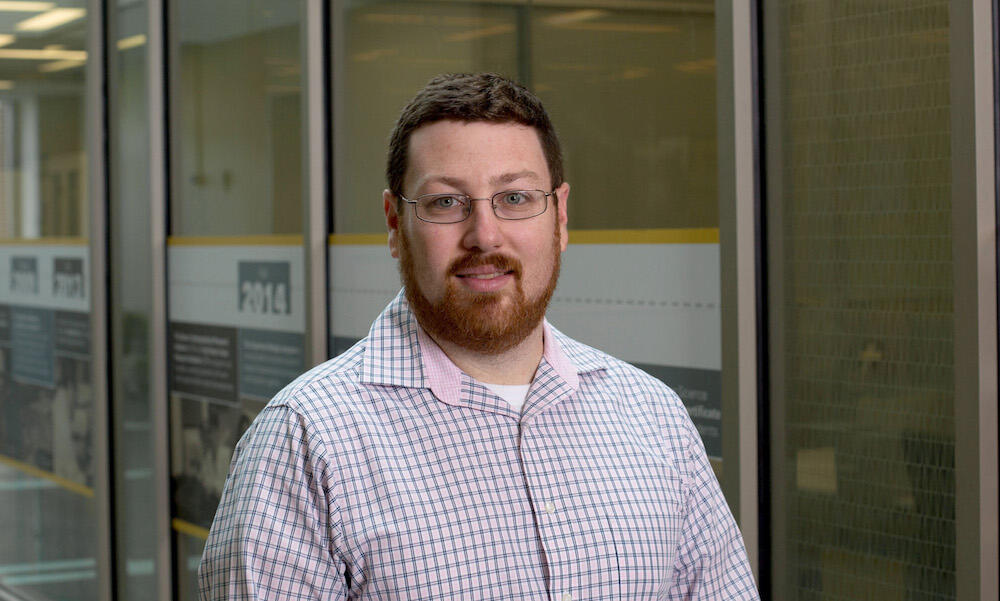Dec. 3, 2018
Researchers investigate links between genetic mutations and cardiac death
Share this story

Seth H. Weinberg, Ph.D., an assistant professor in the College of Engineering, and researchers at two universities, including Virginia Tech, are investigating genetic mutations that can lead to sudden cardiac death.
Weinberg, who teaches in the Department of Biomedical Engineering, is researching a mutation that causes one inherited type of Long QT syndrome. The disorder can cause sudden arrhythmias — problems with the heartbeat rate or rhythm.
The investigators, jointly led by Weinberg and Steven Poelzing, Ph.D., an associate professor at the Virginia Tech Carilion Research Institute, recently were awarded a $2.5 million grant by the National Heart, Lung, and Blood Institute of the National Institutes of Health to help fund their work.
Weinberg’s Computational Physiology Lab, which focuses on cardiac electrophysiology and mechanobiology, will develop and test models regarding the mutation while Poelzing directs experiments. Isabelle Deschenes, Ph.D., of Case Western Reserve University is also collaborating.
“We know that some people will have those mutations but not have any symptoms of the disease,” Weinberg said.
Such patients can lead healthy lives up until a certain point, but some may suddenly experience a dangerous arrhythmia, he said.
“In many of those cases, that can be lethal,” Weinberg said.
The investigators are studying the role of sodium ion channels in cardiac tissue. For patients with this particular genetic mutation, the flow of sodium ions through ion channels in the heart cells is not normal and can trigger arrhythmias.
“Sodium is one of the key molecules that is regulated in cardiac cells,” said Weinberg, who will receive $568,858 over the next four years to conduct his research.
In a healthy heart, regulation of the channel is highly controlled. However, for patients with LQTS and other heart diseases, that channel is defective, Weinberg said.
“The grant is all about understanding how that regulation goes wrong in certain heart diseases,” he said.
Subscribe to VCU News
Subscribe to VCU News at newsletter.vcu.edu and receive a selection of stories, videos, photos, news clips and event listings in your inbox.










